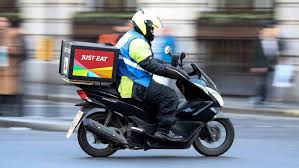Moreover, potential growth may be overstated. Subsidies make true demand hard to gauge. When delivery charges and service fees eventually rise, which they will have to if profits are to materialise, some customers may flee. In the meantime, cheap money lets firms undercut rivals but distorts incentives. The war of attrition could get even worse if giants like Amazon muscle in, as it has tried to do by buying a stake in Deliveroo (the deal is stalled at present because of antitrust concerns). Alibaba, Amazon’s Chinese counterpart, uses Ele.me as a loss leader helping drive traffic to its profitable e-commerce sites.

Delivery businesses have ways to cut their losses. One is to diversify further, by delivering groceries, flowers, booze, and even people (as Uber does), as well as meals. Another is to provide cheaper meals by centrally supplying ingredients to restaurants, or building “ghost kitchens” that prepare food only for delivery. In “winner takes most” markets, the best way to drive up volumes and share of the proceeds is through consolidation across countries and cities. Mr Groen’s attempt to gobble up Just Eat marks the biggest foray so far. In the unappetising dog-eat-dog world of food delivery, it will still be a hard deal to digest.
译文由可可原创,仅供学习交流使用,未经许可请勿转载。












